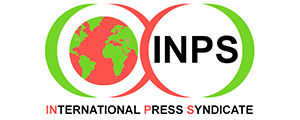
By Franz Baumann * | Reproduced courtesy of PassBlue
The author is a former assistant secretary-general of the United Nations and special adviser on environment and peace operations. This article originally appeared with the headline: UN Bureaucracy? No, Thanks.
NEW YORK – After more than 30 years of service, I retired from the United Nations as an assistant secretary-general, Special Adviser on Environment and Peace Operations, at the end of 2015, but to officially conclude my tenure with the UN, there was bureaucratic paperwork to contend with, to which Bartleby the Scrivener, Melville’s reluctant clerk, might have said, “I would prefer not to.”
During my last week in the office, between Christmas and New Year’s Day, and despite the new information-technology system, Umoja, I had to fill out by hand myriad forms. Originals of my marriage certificate (from 1987) and our daughter’s birth certificate (2000) needed to be submitted, even though the UN had moved us as a family across oceans a few times.
This paperwork was not a requirement of Umoja, a $400 million system that besides the UN is used in more than 100,000 institutions internationally. Filling out these forms was necessary because the antiquated, paper-based processes in the UN Secretariat have not been adjusted to the new system yet. Buying a new IT solution does not equal reform; it is also no substitute for reform.
The “exit interview” by the UN’s human resources people was completed before I left, which meant that all clearances were in hand, or so I thought; but they were not. For one, the United States Office of Foreign Missions was not advised of my departure for weeks; months actually. As a result and because we are not American, adjusting my family’s visa status or re-registering our car (from diplomatic plates) was another Catch-22. After several inquiries, it turned out that one form still needed to be completed – by hand – and signed by my former executive office for transmission to the host country, the U.S. This was done after Easter.
As it happened, another glitch kept me from visiting the credit union at UN headquarters in New York, since my temporary grounds pass to the compound expired on March 31, and since I do not have a pension number from the UN yet, a new pass cannot be issued, not even a temporary one.
I would like to visit the credit union, as I am still waiting for the financial settlement from the Secretariat for unused leave, an education grant and other entitlements. Not to mention the first pension payment. What is going on here? Is my case an anomaly, the proverbial black swan? Unfortunately, not.
The hurdles grow higher. An ominous message titled “Backlog in payments of pension benefits is being eliminated” was posted, unsigned, by the UN’s Department of Management on the UN’s intranet in April 2016. Upon reading this alarming message, I learned that there were 1,700 backlogged pension fund cases, with the good news that they were to resolve by the end of May. I’ll keep you posted.
The message further said that the problem was not only in the pension fund but also in the Secretariat, namely an unidentified number of “necessary HR and Payroll processes needed [sic] for pension purposes.”
Efforts would “continue with the aim of eliminating the backlog within the UN Secretariat no later than 31 May 2016.” Not a word of regret for the hardship caused to hundreds of retirees and their families.
Sadly, these are not hiccups but chronic crisis symptoms of an overadministered and undermanaged institution. In fact, another literary reference comes to mind: Dante’s “Divine Comedy”: “Lasciate ogni speranza, voi ch’entrate.” Abandon all hope, ye who enter.
Delivery timelines, key performance indicators or seamless end-to-end workflows do not exist. Instead, the UN is a coiled-up machinery in which processes, rather than being rationalized and integrated into larger schemes, are compartmentalized and rarely reviewed for their usefulness. Corporate management is weak, fragmented, duplicated and incoherent. It is often said that micromanagement on the part of UN member states impedes sound administration. This is certainly a concern, yet it cannot explain or excuse internal incoherence.
For instance, the UN Secretariat no longer has an organigramme, or organization chart, not even a template for one. A few departments have them, yet they are all in different formats. The same goes for websites, none of which has a serviceable search function. This is immediately evident on the UN’s main site, where searches for “sexual exploitation by peacekeepers,” “climate change” and “multilingualism,” for example, lead nowhere or everywhere.
Similarly, the Official Documents System — early 1990s technology — has no search function. Unless one knows the precise code, a document cannot be located. Information is buried, unretrievable and therefore useless. Incredibly, the Secretariat no longer has a corporate archiving policy or recordkeeping system, as noted by the Joint Inspection Unit.
Without central standards and systems, some departments have established their own methods of operating. Mostly, staff members save their own messages as well as data documents however they can. This was made clear when news broke in 2015 of a bribery scandal stemming from the office of the president of the UN General Assembly, revealing, among other things, that no handover protocols existed from one term to the next. Knowledge management, based on an organization-wide data architecture, obviously needs to be developed.
Moreover, no skills inventory exists for the more than 40,000 UN staff members. The filling of vacancies is based on résumés and interviews conducted by program managers, for whom this has become an onerous additional duty, unsupported by human resources professionals. Job openings each attract, on average, an unmanageable 250 applicants, according to a recent report from the Advisory Committee on Administrative and Budgetary Questions, otherwise known in UN jargon as ACABQ.
To be precise and bureaucratic, the UN Board of Auditors notes that “workforce planning is in its infancy”; that the Office of Human Resources Management is “not involved in the creation, continuation, re-classification or abolition of posts as part of the budget process, and does not have a role in post-budget monitoring and analysis of workforce trends and profiles”; and that there are “over 70 different ICT [Information and Communications Technology] units in various departments, offices and field missions, and around 2,200 software applications in use across the United Nations Secretariat.”
The erosion of corporate functions at the UN is obviously inefficient and debilitating, as it would be at any airline, university, hospital, insurance company, bank or major police department.
Instead of sapping energies or diverting resources from substantive UN activities, management should support and facilitate such work. Sadly, this is not the case. The independent panel established by UN Secretary-General Ban Ki-moon to review peace operations stated categorically that administrative procedures are failing peacekeeping missions and their mandates. Force commanders and troop contributing countries are exasperated by bureaucratic constraints that fail to meet reasonable demands in difficult settings.
Senior managers complain of deep dysfunction and are frustrated by the inability to recruit rapidly on the one hand and by the obstacles to removing poor performers on the other. Staff members are discouraged and frustrated by red tape and a lack of mobility and career development. Administrative risk-controls poorly suited to the field leave mission leaders and administrators feeling constrained from making common-sense decisions to pursue their mandate.
Too often, the choice is between what makes sense for the mission and what complies with unwieldy procedures, and usually the choice involves doing what is compliant. The result, an underperformance of mandates, poses extremely high risks to operations as well as to reputations.
A well-functioning Secretariat will not necessarily overcome crises of multilateralism, but a dysfunctional Secretariat is grist for mill for those who see the UN as an incompetent and wasteful distraction. Considering the UN’s symbolism, legitimacy, convening power and mission across its 70 years, the importance of good internal governance cannot be overemphasized. It will require considerable effort by the next secretary-general — woman or man, but preferably not a bureaucrat — to undo the symptoms of neglect and reverse the decline of the Secretariat.
Every secretary-general, the world’s highest-profile diplomat and guardian of the very concept of multilateralism, is also the chief administrative officer of an organization of more than 40,000 staff members and annual budgets of more than $10 billion. In the precedent-setting UN General Assembly public hearings in April, in which interviews of candidates for the next secretary-general were held, nitty-gritty management issues barely came up.
The nuts and bolts of the Secretariat have been short-changed. A Secretariat run competently and with integrity is crucial to the organization’s legitimacy. Even Bartleby would agree with that.
* Franz Baumann joined the UN Development Program in 1980 and began working in the UN Secretariat in 1985. He retired in 2015 as an assistant secretary-general, special adviser on environment and peace operations, after working about a dozen assignments under five secretaries-general, in four duty stations and on three continents. [IDN-INPS – 16 May 2016]
Photo: United Nations Headquarters in New York City, view from Roosevelt Island
IDN is the flagship of International Press Syndicate.

